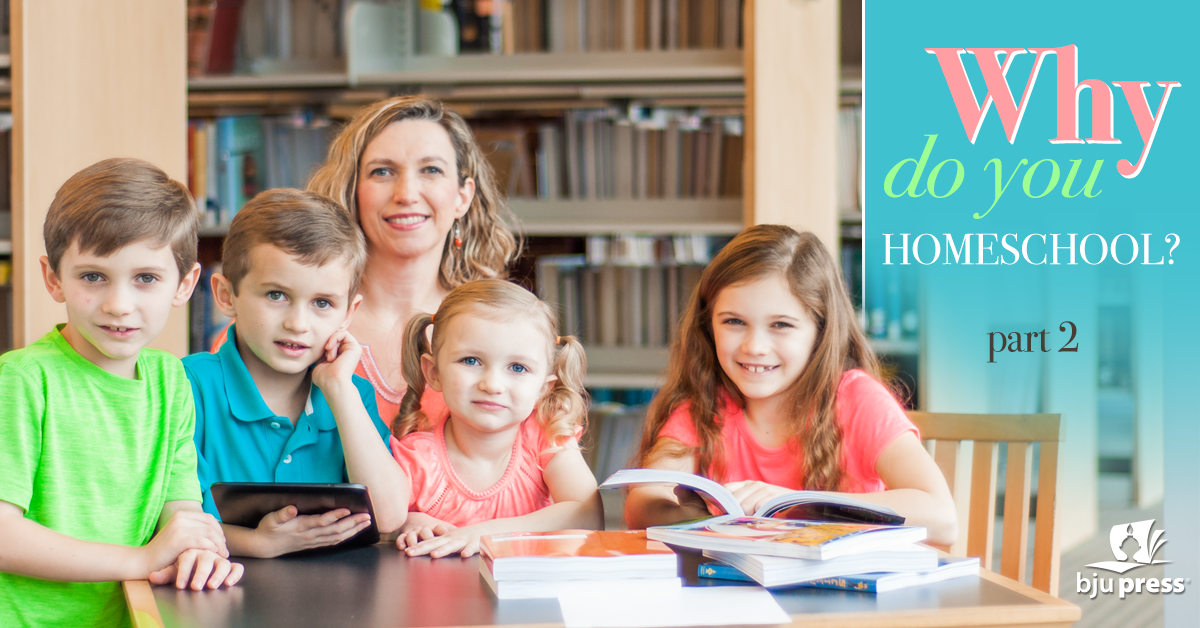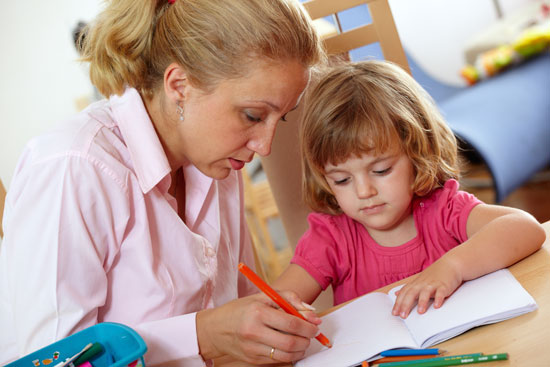
When my husband and I started homeschooling our oldest daughter last fall, we knew it was not going to be easy. I wondered if we were crazy—here I was, mother of three children under the age of seven trying to educate my oldest daughter, keep my five-year-old and toddler out of too much trouble, keep my house reasonably clean, and make sure my family had clean clothes to wear and food to eat. And to top it all off, I was pregnant with our fourth child and struggling with morning sickness for a good part of the day.
I was more than a little worried that our household would fall completely apart once the new baby came. And I wasn’t sure how or if we would get any homeschooling done. I pictured our family going into survival mode—and never coming out. Maybe some of you can relate.
But we did survive. Our fourth daughter arrived in the middle of December, and the transition was remarkably smooth. We did (and still do) have some rough days. But I learned some things along the way that I wanted to share. I hope these tips will be a blessing to you if you are facing a similar situation.
Planning Ahead Helps
Thankfully, I had many months to figure out how our family was going to make the transition. Since our little blessing was due in the middle of the homeschool year, we chose to start early (the first week of August) so that we would have ample time to take off if we needed to. Even though we haven’t had to take off nearly as many days as I thought we might, I’m really glad that we prepared for the possibility.
I also tried to minimize our commitments for the spring. We’re doing the basic subjects plus a weekly piano lesson—and no more. The lack of clutter on my calendar keeps the stress from creeping in.
I also took the time to plan out a basic daily schedule. Our schedule is not as tight or rigid as it used to be; I’ve learned that a little flexibility helps me not get overly stressed. Instead, we follow a flexible schedule and divide up our time into chunks. (Read more about this scheduling method from Kim at Not Consumed.)
Other People Can Help
Following the birth of my daughter, I had a lot of extra help. The fact that my daughter was born around the holidays meant that my husband had some time off. My parents and my in-laws also came to visit. They helped clean and cook and babysit. We chose to take advantage of the extra help and kept on homeschooling through those early transition days.
Distance Learning Can Help
Distance Learning is a big reason why homeschooling has gone so smoothly for us this year. My second grader watches Distance Learning daily video lessons for three subjects: science, English, and Bible. Because she can do these subjects almost completely independently, homeschooling doesn’t have to stop while I’m nursing the baby, fixing the toddler a snack, or starting a load of laundry. (You can learn more about BJU Press Distance Learning here.)
Homeschooling with small children and an infant is challenging. But it is doable and very rewarding. If this is what the Lord has called you to, He will enable you by showering you with wisdom, strength, and grace to meet the daily challenges you face. And remember that you’re not alone! If you’re in need of a big dose of encouragement, check out some of my other posts.
 Why should you homeschool your child? At the beginning of
Why should you homeschool your child? At the beginning of 